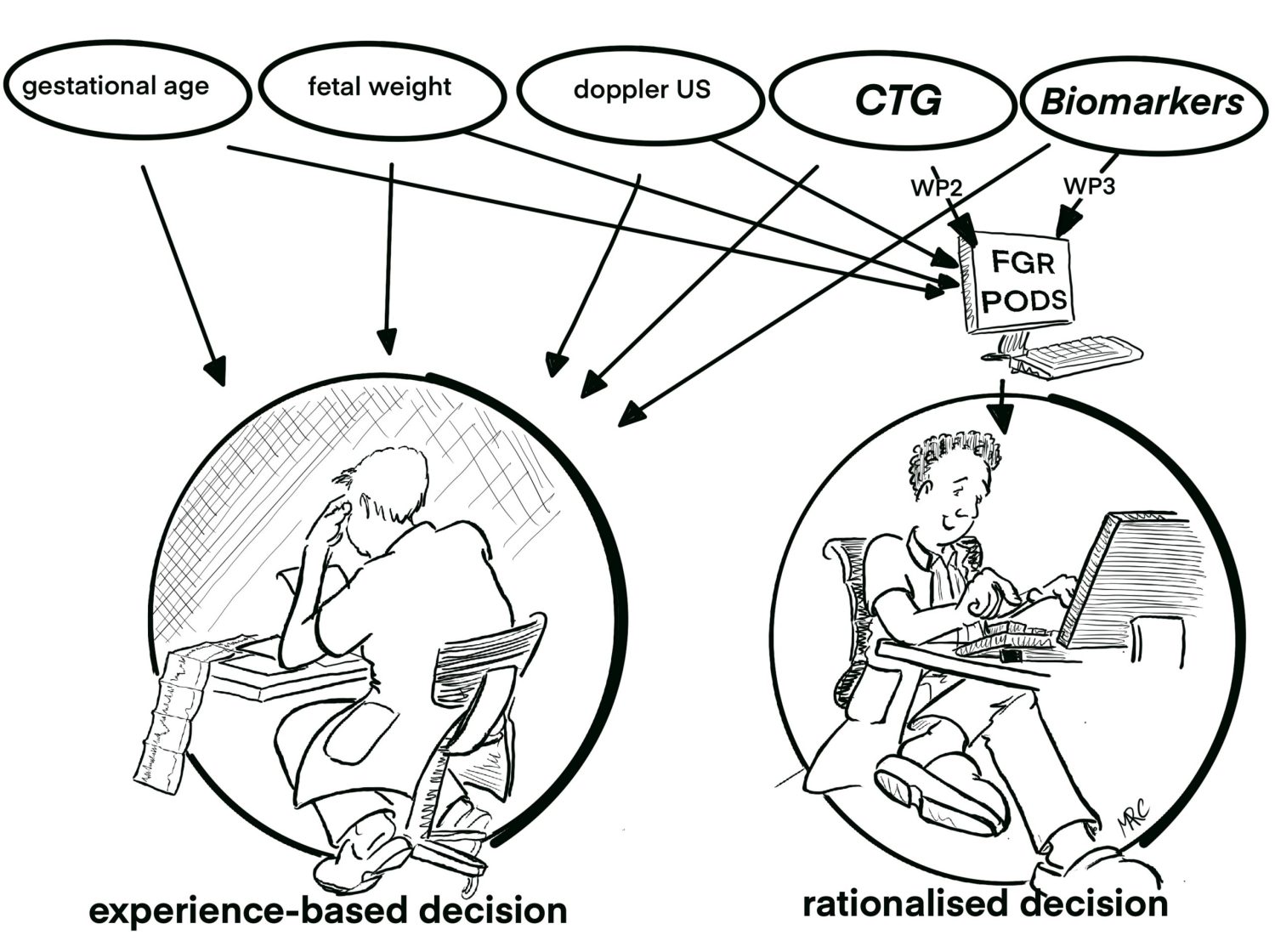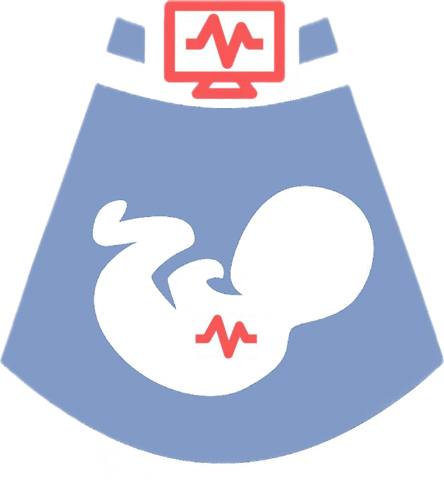Fetal Growth Restriction Perinatal Outcome Decision Support (FGR PODS)
In may 2023, Wessel Ganzevoort was awarded a prestigious Consolidator Grant from the European Research Council for the overarching project FGR PODS (Fetal Growth Retriction Perinatal Outcome Decision Support), aimed at supporting gynecologists in their decisions regarding the optimal timing of delivery for unborn babies with very early FGR.
In the overarching FGR PODS project, we will be mining all data from the large group of women who participate in the clinical study SAVE FGR. The SAVE FGR study will be running in the Netherlands, Denmark, and Belgium. It is intended that a parallel group of European hospitals will also participate to generate cohort data for validation of findings.
In this project, we will collect all diagnostic and monitoring data of pregnant women with early-onset fetal growth restriction. These data include blood samples, fetal heart rate patterns (taken from fECG or conventional CTG), ultrasound, maternal hemodynamics and clinical data.
Read more
We will query all data that are already known to be important, but we will also delve into the data to find new markers of the onset of fetal hypoxia.
Central goal of FGR PODS is to integrate all data and develop a ground-breaking open access validated objective decision support tool for obstetricians to determine the optimal timing of birth based on integrated fetal and maternal prognosticators, thereby improving perinatal outcomes.
Practice would be improved if the decision support tool can assist clinicians to choose timing of delivery rationally: not too early and not too late…


